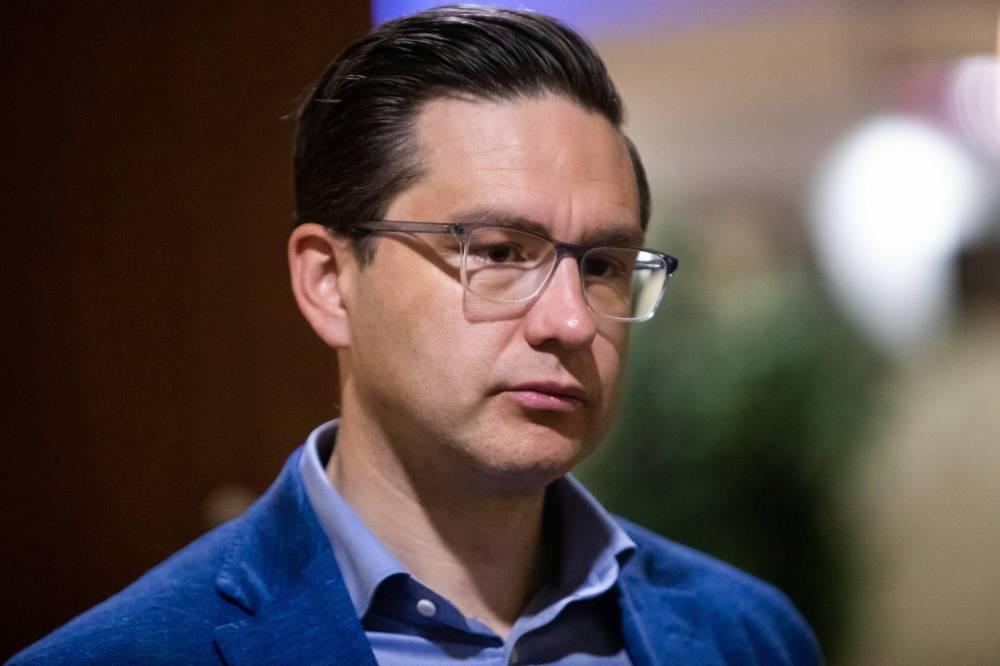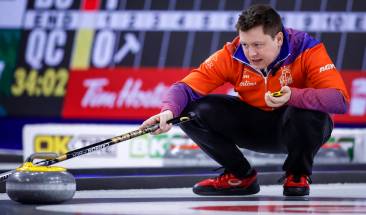Byelection sends message to, and about, Poilievre
Read this article for free:
or
Already have an account? Log in here »
To continue reading, please subscribe:
Monthly Digital Subscription
$0 for the first 4 weeks*
- Enjoy unlimited reading on winnipegfreepress.com
- Read the E-Edition, our digital replica newspaper
- Access News Break, our award-winning app
- Play interactive puzzles
*No charge for 4 weeks then price increases to the regular rate of $19.00 plus GST every four weeks. Offer available to new and qualified returning subscribers only. Cancel any time.
Monthly Digital Subscription
$4.75/week*
- Enjoy unlimited reading on winnipegfreepress.com
- Read the E-Edition, our digital replica newspaper
- Access News Break, our award-winning app
- Play interactive puzzles
*Billed as $19 plus GST every four weeks. Cancel any time.
To continue reading, please subscribe:
Add Free Press access to your Brandon Sun subscription for only an additional
$1 for the first 4 weeks*
*Your next subscription payment will increase by $1.00 and you will be charged $16.99 plus GST for four weeks. After four weeks, your payment will increase to $23.99 plus GST every four weeks.
Read unlimited articles for free today:
or
Already have an account? Log in here »
Hey there, time traveller!
This article was published 19/12/2022 (1086 days ago), so information in it may no longer be current.
Conservative Party of Canada Leader Pierre Poilievre, who looked invincible three months ago after winning his party’s leadership convention, looks a little more vulnerable this week after his candidate lost badly in a byelection in the Ontario riding of Mississauga-Lakeshore.
Conservatives dissatisfied with his leadership may now be emboldened to start questioning how long his followers should stick with him.
In the Mississauga-Lakeshore byelection on Dec. 12, Liberal Party candidate Charles Sousa took 51 per cent of the vote, well ahead of 37 per cent for Conservative Party candidate Ron Chhinzer. The CPC share of the vote was down slightly from the result it achieved in the 2021 general election. The NDP’s share of the vote dropped by five percentage points, while the Liberal share was up six points.
Since only 28 per cent of eligible voters turned up to vote, the Mississauga exercise is a poor predictor of what might happen at a general election three years hence. As an early verdict on Mr. Poilievre’s effect on Conservative Party fortunes, however, the result suggests he has yet to win new friends for the party among the Ontario suburban voters he needs to bring the CPC from opposition to government.

At the Conservative Party leadership convention in September, Mr. Poilievre enjoyed support of 68 per cent of voting members, leaving runner-up Jean Charest in the dust. Newly recruited Conservatives in all parts of the country massively favoured Mr. Poilievre over his rivals. The leadership vote offered no glimmer of hope that a challenger might win wide support for a bid to unseat Mr. Poilievre.
Unseating is an issue, because the CPC has little patience with leaders who do not immediately bring them to power. Andrew Scheer and Erin O’Toole were promptly dumped when they lost general elections to Justin Trudeau’s Liberals.
Mr. Poilievre did not campaign for the CPC candidate in Mississauga-Lakeshore. The Liberals had a strong candidate in Mr. Sousa, who had previously been elected to the Ontario legislature in part of the same territory and had served as finance minister in Liberal provincial governments.
In sitting out the campaign, Mr. Poilievre more or less conceded defeat in advance. This might help him to avoid personal responsibility for the debacle, but his absence from the campaign may also have warned future Conservative candidates not to expect help from the leader when they have difficult electoral battles to fight.
In sitting out the campaign, Mr. Poilievre more or less conceded defeat in advance.
Mr. Poilievre has been offering a new style of Conservative leadership — angry, combative and uncompromising, where Mr. Scheer tried to be amiable and Mr. O’Toole tried to appeal to centrist voters who had voted Liberal in the past. The Mississauga contest offered a first test of how the angry new style is going over with the Ontario suburban public. The numbers seem to say it has fallen flat so far.
Given the Conservative tendency to stab their own leaders in the back at the first sign of weakness, Mr. Poilievre should be alert for signs of restlessness in the ranks. His September leadership-convention win showed he was the only way forward in the eyes of Canada’s Conservatives. The Mississauga result in December, however, shows the wider public he needs to reach is still immune to his charm.
Conservatives should be patient with their leader. They should resist the urge to start conspiring against him at the first sign of trouble. Mr. Poilievre deserves the chance that Mr. Scheer and Mr. O’Toole were never given, to show that his approach can eventually work.
A third mutiny and a third leadership convention in rapid succession would bring ridicule upon the party.











